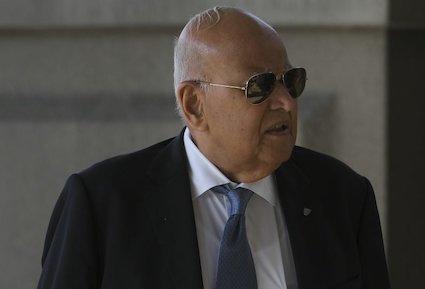
(Malaysia Now) – A prominent former Federal Court judge says it is not essential for the Yang di-Pertuan Agong to sign off on a Cabinet decision to revoke the emergency ordinances, in what could be a constitutional solution to the current stalemate sparked by the palace’s refusal to consent to the move to end the state of emergency.
Gopal Sri Ram said a precedent had been set in a landmark constitutional case some six decades ago.
He referred to the 1963 case between the federal government and the state of Kelantan, where the presiding judge, then-chief justice of the Federal Court of Malaysia James Beveridge Thomson, had given his ruling which vested executive power in the Cabinet to act in the king’s name.
“If you read carefully the judgment by Thomson in that case, it is clear that the Cabinet is vested with the ultimate authority in all things,” Sri Ram, who served in both the Court of Appeal and Federal Court where he delivered more than 800 judgments considered as leading legal authorities in Commonwealth courts, told MalaysiaNow.
Yesterday in a statement to the media, Istana Negara revealed that the Agong had yet to give his consent to the Cabinet’s advice to revoke the emergency ordinances effective July 21, or the decision not to extend the emergency beyond the Aug 1 expiry date.
The palace also said the Agong was disappointed that the government had announced the decision without putting the matter to debate in the Dewan Rakyat.
In response, the Prime Minister’s Office detailed the series of meetings and communications involving the Cabinet and the Agong, rejecting claims that its revocation of the emergency ordinances were out of sync with procedures.
The royal statement sparked calls by opposition leaders for Prime Minister Muhyiddin Yassin to step down, accusing him of committing “derhaka” or treachery.
But Sri Ram said it would have no effect on the validity of the Cabinet’s decision in the event that the Agong still refused to sign off on it.
“The Kelantan case says the signatures of three ministers are sufficient. It also holds that as the Cabinet executes in the name of the king, the formality of the king’s signature is not essential.”
In the 1963 case, the state of Kelantan challenged the validity of the Malaysia Agreement (MA63), saying it should not be binding on it as it would abolish the earlier 1957 agreement which created the Federation of Malaya.
Kelantan argued that MA63 had not obtained the consent of its ruler due to the changes in the constitution.
In that case, Thomson held that MA63 was signed for the Federation of Malaya by the prime minister, the deputy prime minister, and four other members of the Cabinet.
“There is nothing whatsoever in the constitution requiring consultation with any state government or the ruler of any state,” he said.


No comments:
Post a Comment
Note: Only a member of this blog may post a comment.